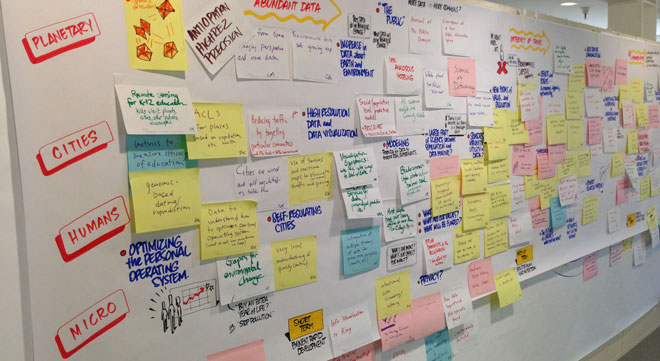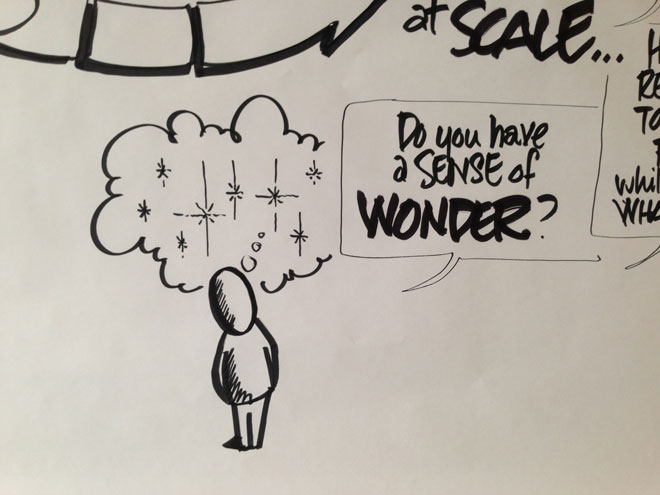Future Now
The IFTF Blog
The Coming Age of Networked Matter - Expert Workshop
We’re at the beginning of a reignited revolution in networked computers as more of the physical world starts to come online. Think far beyond the ‘Internet of Things’ and consider buildings that blog, or robots self-organizing into ‘social networks’, or secret backchannels of inter-cellular communication. In 2013 IFTF’s Technology Horizons team is exploring the emerging technologies in computation, sensing and actuation, wireless communication, material science, and even biology that will underpin the coming Age of Networked Matter.
To help us think about the exciting and strange potentials of this coming Age, we recently hosted a workshop with 10 leading experts and visionaries from many different fields. These scientists, technologists, sociologists, educators, artists, and writers shared their own perspective on what this new Age may hold.
Participants included:
Michael Joaquin Grey, Artist
Bernardo Huberman, Director, Social Computing Lab, HP
Brian Johnson, Superorganisms Researcher, UC Davis
Rachel Kalmar, CIO, Misfit Wearables
Peter Lucas, Author "Trillions", Founder Maya Design
Chris McKay, Planetary Scientist, NASA
Kathryn Myronuk, Director of Research, Singularity University
Pamela Paquin, Director of Education and Outreach, Donella Meadows Institute
Rudy Rucker, Science Fiction Author
Michael Stone, Senior Editor, Ecoliteracy Institute 
This diverse group of people brought an incredible range of ideas. Brian Johnson shared his research investigating how honey bees coordinate and allocate resources as a hive, while legendary author Rudy Rucker helped us imagine what it would be like to have an aura of familiarity as we walk down the street, instinctively knowing every unseen detail in our surroundings, just as we know the contents of our pockets. Rachel Kalmar shared a myriad of sensors that collect an abundance of personal data for her quantified self experiments, and she challenged us to consider how tracking our own data could help us forecast our own personal futures. And Chris McKay reminded us that with all of these sensors, from the micro scale to satellites, "We're recording data that we don't yet know that were recording to answer questions that we don't yet know how to ask."
The group uncovered countless new opportunities in the coming Age of Networked Matter: how natural systems might merge with technological networks, new ways to organize information hierarchies, and more universal means of communication. The day was such an exciting start to our research. Thanks to everyone who joined us for the workshop, and a special thanks to Anthony Weeks for helping visualize the process. 
Follow along with our progress on iftf.org, or if you haven't already, join the Technology Horizons Program and attend the conference this Spring.



